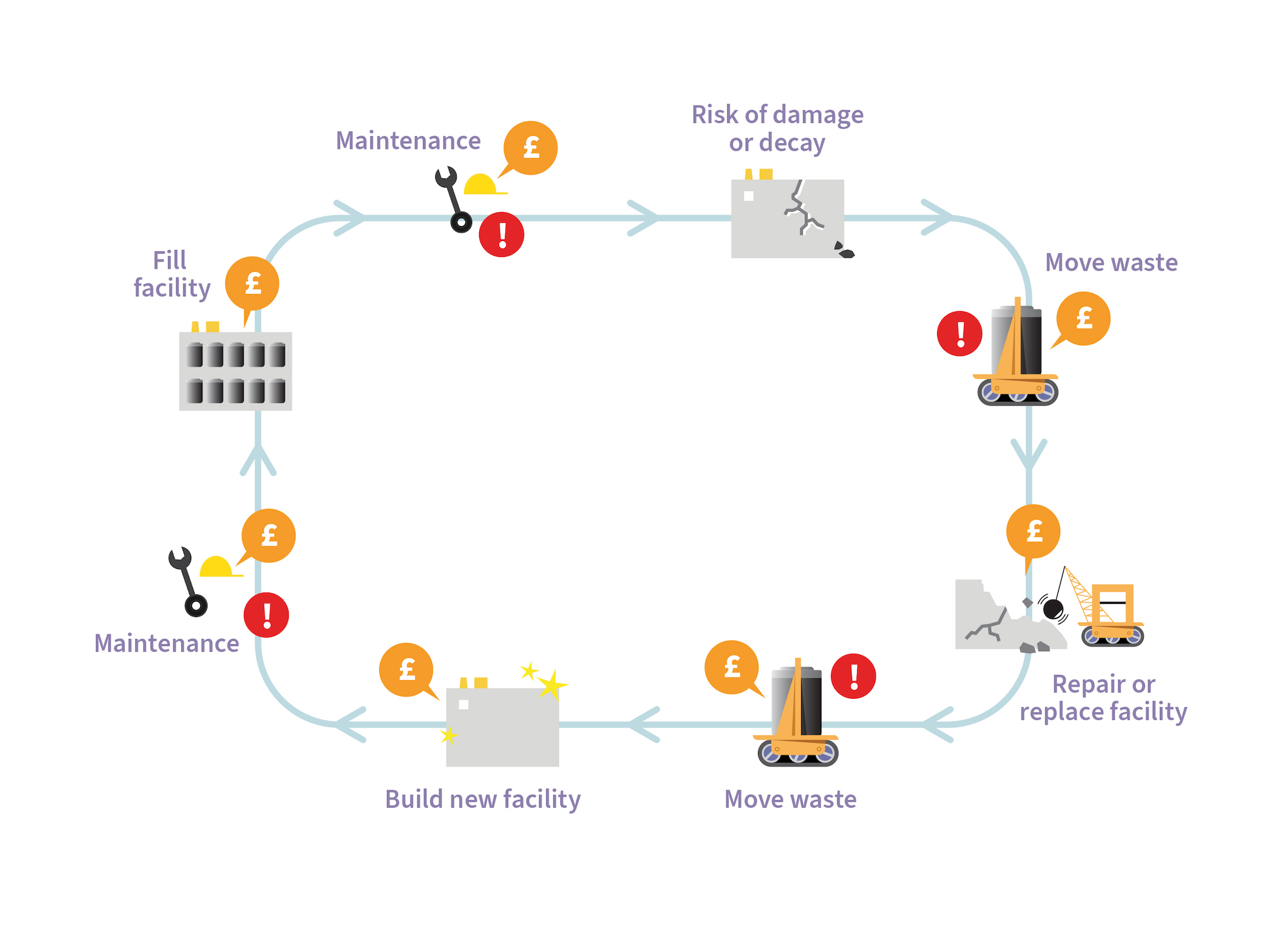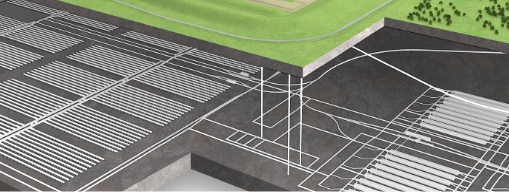Geological disposal involves isolating radioactive waste deep underground, inside a suitable rock volume to ensure that no harmful quantities of radioactivity reach the surface environment. A GDF will be a highly engineered structure consisting of multiple barriers that will provide protection to people and the environment over hundreds of thousands of years whilst the radioactivity naturally decays. This will be at a depth of between 200 and 1,000 metres.

The current approach (above) is not a permanent solution
The purpose-built above ground facilities where the UK currently keeps radioactive waste – most of which are at Sellafield in Copeland – are designed to be safe for around 100 years, and do not provide a permanent solution. They need to be continually monitored to keep the waste secure and periodically refurbished while the radioactivity naturally decays. For some of the waste this will take many thousands of years, so even if well maintained, eventually, they will need to be replaced, or the waste moved elsewhere. Surface storage is also vulnerable to natural and human effects.
Take a trip 1km underground, several decades from now, to explore a Geological Disposal Facility.
Scientists and other authorities all over the world agree that a GDF is the safest way to deal with ‘higher-activity’ radioactive waste (the most radioactive kind) for the long term. This international consensus comes after decades of scientific research.
The Office for Nuclear Regulation and the Environment Agency will review the designs for a GDF, the proposed site, and the science that informs them, to make sure it protects people and the environment. A GDF will only be built if it can meet these criteria. You can find further help and advice on these independent regulators’ websites:
Office for Nuclear Regulation (ONR)
You can also find information about the government’s independent advisors on radioactive waste management, the Committee on Radioactive Waste Management, (CoRWM), who currently state a GDF is the best available approach.
There are many things to consider when selecting the location of a GDF, but having a GDF in the UK will create jobs and guaranteed investment for the host community.
As well as the Site Evaluation and Site Characterisation work currently being undertaken by the GDF developer, the Community Partnership intends to publish its own independent report on the potential impacts of a GDF, specifically relating to South Copeland, in Spring 2024.
Learn more about GDF via interactive e-learning modules.

Please explore the documents below for further information on geological disposal.
Please note that the 'GDF – Creating Jobs & Skills: a First Look' report provides a national picture and is not specific to any region. NWS is commissioning further detailed analysis to understand the requirements for specific regions.